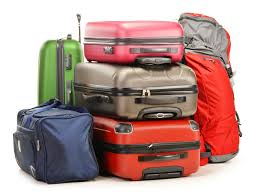记忆方法
联想记忆法:将“luggage”拆分为“lug”(重物)和“gage”(测量)。想象一捆重重的行李,需要通过“测量”来确定重量,从而记住这个词是指行李。
以上内容由AI生成, 仅供参考和借鉴
中文词源
luggage 行李
来自lug,拉,引申词义行李。
英语词源
- luggage (n.)
- 1590s, from lug (v.) "to drag" + -age; so, literally "what has to be lugged about" (or, in Johnson's definition, "any thing of more weight than value"). In 20c., the usual word for "baggage belonging to passengers."
权威例句
- 1. He waited until all the luggage was cleared, but Paula's never appeared.
- 他一直等到所有的行李都拿走了,但始终没看见葆拉的。
- 2. They checked in their luggage and found seats in the departure lounge.
- 他们办完行李托运,到候机室找了座位坐下。
- 3. My rucksack was too big for the luggage rack.
- 我的背包太大了,行李架上放不下。
- 4. Clothes were thrown in the luggage in an untidy heap.
- 衣服被乱糟糟地扔进旅行箱里。
- 5. Don't worry, your luggage will come on afterwards by taxi.
- 别担心,你的行李随后会由出租车送过来。
